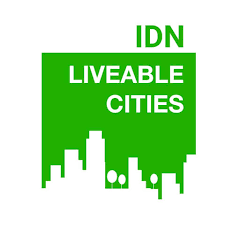Indonesia Liveable Cities Update 2022 “Young Generation as the Heart of Indonesia’s Development and Innovation”
To celebrate the Youth Oath Day on 28 September, Indonesia Diaspora Network in the Netherlands Taskforce Liveable Cities (IDN-LC) in collaboration with the Indonesia Diaspora Network in the Netherlands (IDN-NL) and the Embassy of the Republic of Indonesia in the Netherlands (KBRI Den Haag) organized an event called, ‘Indonesia Liveable Cities Update 2022’.
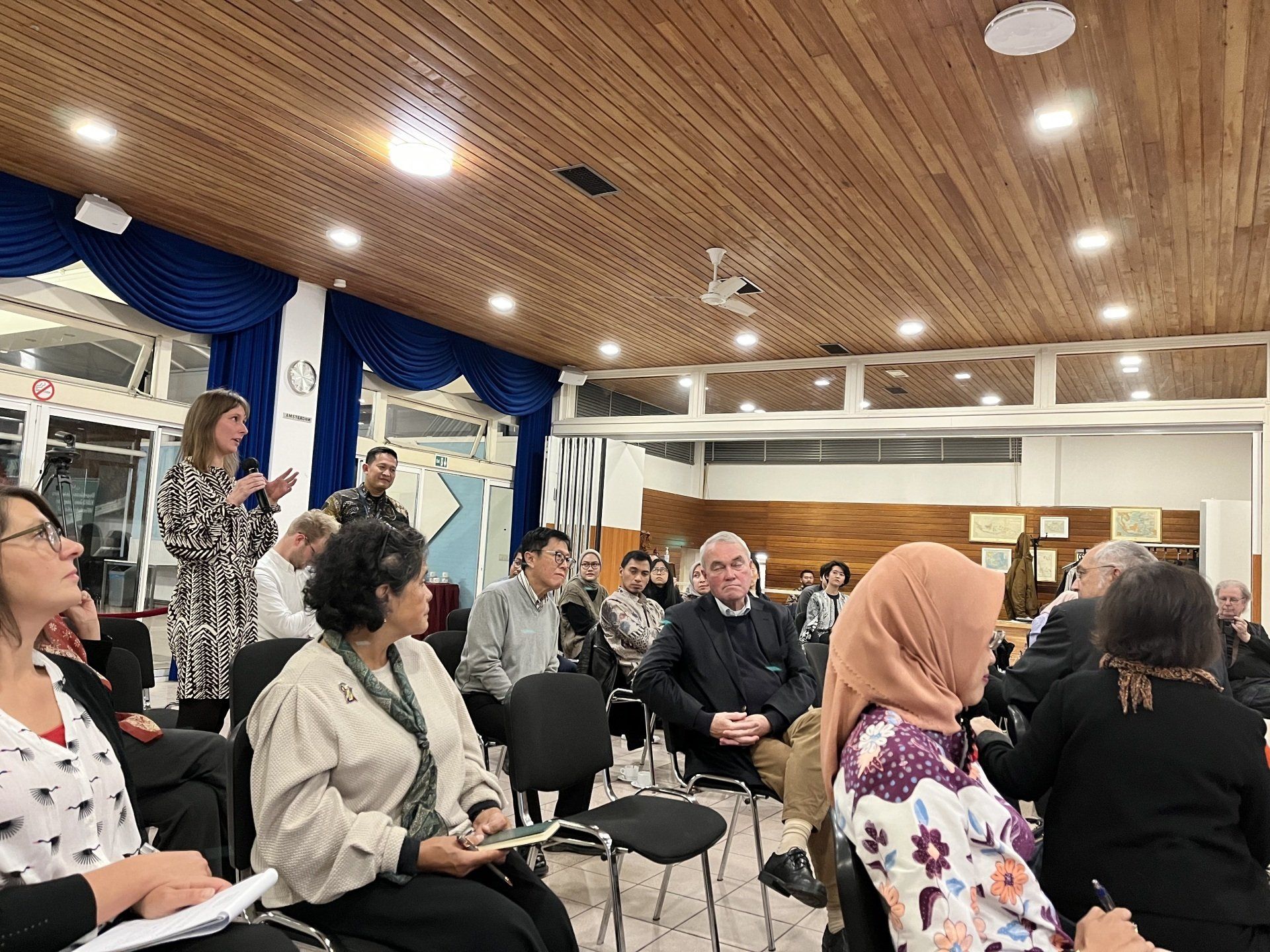
Den Haag – 4 November 2022. ‘Indonesia Liveable Cities Update” is an annual event aimed to exchange knowledge and lessons learned from initiatives happening in Indonesia in the field of urban development. This event is also a form of information dissemination about the recent developments in Indonesia for diasporas and other partners directly from the source.
In coherence with the Youth Oath Day, the event took the youth as the main topic and highlight. Many studies show that the young generation does not only represent the future of a country, but also they are one of the society's main agents of change and progress. Indonesia has 65 million young people aged 10 to 24 and it comprises 28% of the total population. At the moment, Indonesia has a demographic bonus which means the country has more young generation than the older generation. The World Economic Forum in 2019 noted that Indonesia’s young generation has the most spirit in creating innovations and their own businesses among other countries in Southeast Asia.
Therefore, in this event, the organisers invited four young generations from Indonesia and the Netherlands to share their initiatives for Indonesia’s development. The event was divided into two discussion sessions. Yulia, The Water Agency/ IDN Liveable Cities and Shiddiq Sumitro, Transisi Project Initiative Team Lead are two panellists in this session. Both panellists shared two different initiatives, among others:
Asia Water Challenge
Asia Water Challenge is an innovation competition that inspires Asian young talents to contribute to water challenges in their country run by The Water Agency. It was started as part of the broader Holland Water Challenge program, which has been running in several countries since 2010. The competition and its related activities serve as a “platform” to educate and provide a learning mechanism for young generations to the real professional working world. It also supports the business development objectives of the businesses in water sectors in international market setup and connecting businesses with the great young Indonesian talents in the water sector and relevant field.
Transisi Project Initiative: Supporting Electrification of Buses in Jakarta
It was part of The Decentralized Development Lab (DDLab) has been developed by the Deutsche Gesellschaft für Internationale Zusammenarbeit (GIZ) GmbH and commissioned by the Federal Ministry for Economic Cooperation and Development (BMZ) through the “Bund-Länder-Programm - German Government and Federal States Programme (BLP).” The project is implemented in collaboration with minds & makers GmbH and enpact. The program is six months of an intensive incubation program, four teams of entrepreneurs and innovators pitched their solutions to tackling global development challenges to an audience of 60 partners and ecosystem stakeholders. Team Transisi consists of six Indonesian young professionals based in the Netherlands who won this program with the focus on building service to support electrification of buses in Jakarta.
Meanwhile, on the second sessions, two young Dutch were invited to share their master thesis which focused on two different cities in Indonesia. These two young architects were guided by Mrs Wiwi Tjiook, who is the Chair of IDN -LC and Mr Harmen van de Wal, who is a Dutch architect based in Rotterdam. These two panellists are Anna Viola Epping, graduated in 2022 from Master of Architecture at Academy of Architecture Groningen and Jan Willem van Veelen, graduated in 2020 from Master of Science in Landscape Architecture at Wageningen University.
Living in Vertical Kampong in Semarang
Anna focused her master thesis on designing flood-resilience and liveable vertical kampong for one of high density districts in Semarang city, Central Java Province. The city is well-known for its flood problem. From her perspective, designing a vertical kampong is not easy because there are many economic and social layers which need to be considered. The vertical kampong also needs to have a space for its residents to be productive as well.
Creating Walkable Public Space which Narrates a Shared Heritage in Bandung
Willem focused his master thesis on designing a walkable public space in historical areas of Bandung city, West Java Province. Bandung is famous for its tourism since it is located on the high altitude and surrounded by mountains. Despite of the city’s rich history, numerous new buildings are built without consideration to the historical buildings and surrounding areas. In addition to that, walkable sidewalks and public spaces are limited. Therefore, in his thesis, he proposes alternatives to public space designs which can represent a cultural heritage that is owned by each district.
This event was opened by the Mr Royhan Nevy Wahab, the Economic Counsellor of the Embassy of Republic of Indonesia in the Netherlands (KBRI Den Haag). Before the discussion session, two publications done by Indonesian Diasporas were handed over to the Economic Counsellor of the Embassy of Republic of Indonesia in the Netherlands by Mrs Wiwi Tjiook and Mrs Yanti Kusumanto from IDN Liveable Cities. These two publications are the Policy Brief of “Jakarta’s Flood in Times of Climate Change” and “Kembali Membangun Tanah Air”, made in collaboration with Indonesia Science Institute (LIPI).
***

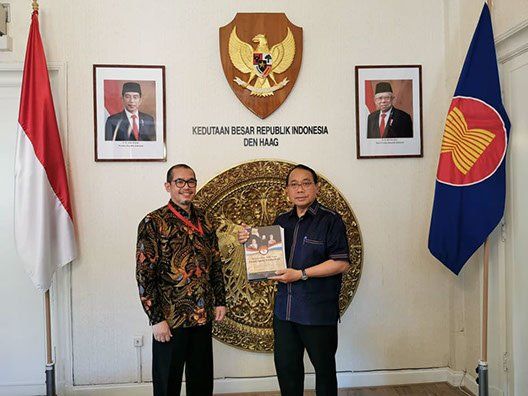

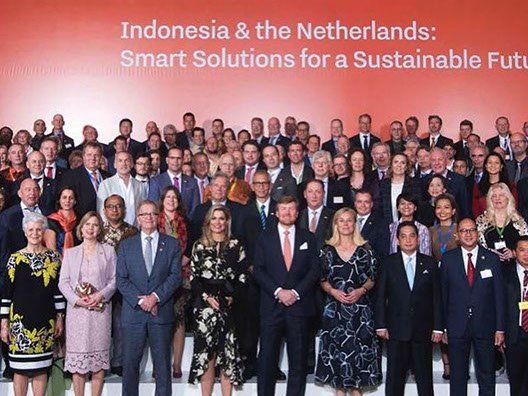
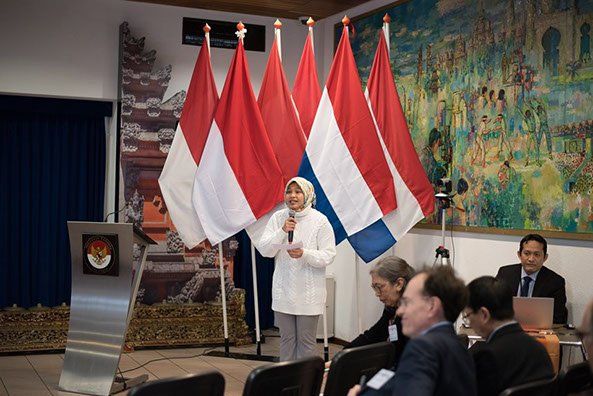
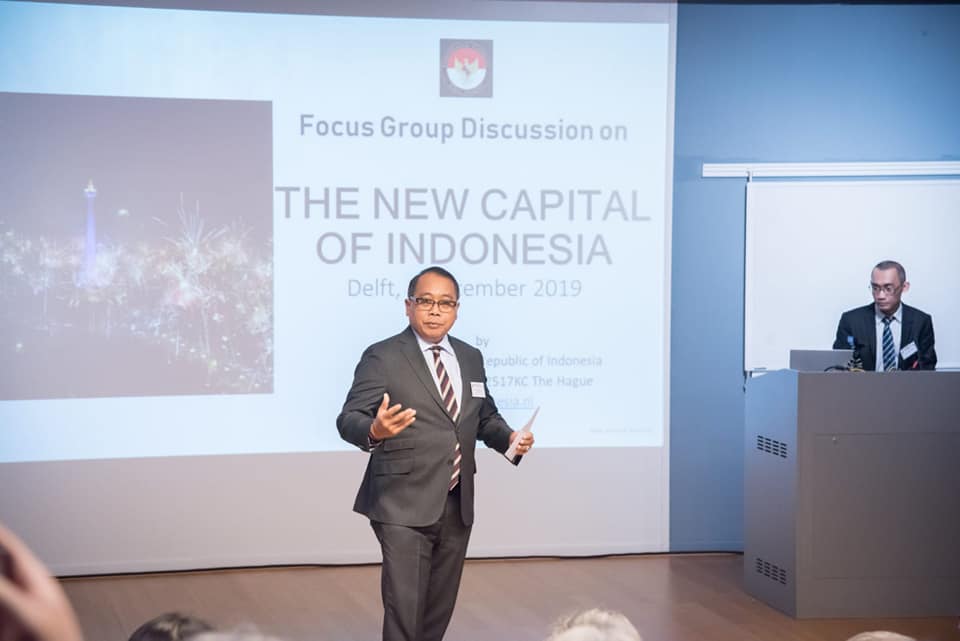
Be part of our network
to make cities more liveable
Be the first to know more about our activities
Neem contact met ons op
© IDN LIVEABLE CITIES ALLE RECHTEN VOORBEHOUDEN
Follow us on social media
